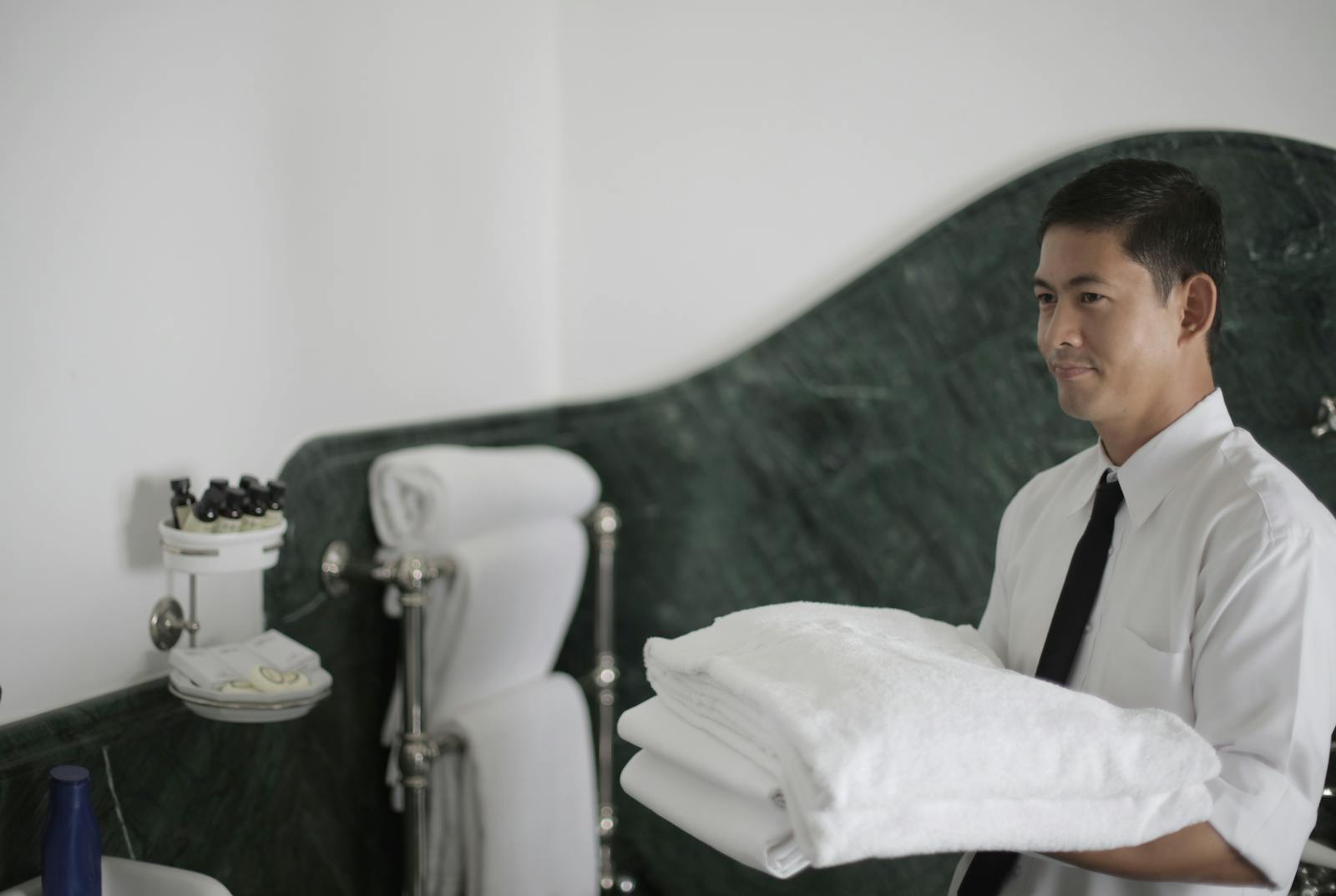
Exclusive interview on House Managers with Steven Ford
As a House Manager and Butler with over two decades of experience, Steven Ford is an exemplar of the domestic staffing industry. Following his excelling career in the Royal Air Force, Steve adopted the role of Butler in an English Manor House. Subsequently, he worked on 5-Star cruise ships and then to VIP families from Russia and Europe, running the household and the budgets. As a consummate professional, highly discrete and incredibly courteous member of the Irving Scott family, he is one of our most valued candidates. Below, he answers some questions about his role, his strengths, and his experiences to date.
- Irving Scott: What are the largest challenges associated with the House Manager position?
- Which members of domestic staff are the key support for a House Manager?
- If you were to perform one other role within those a home – what would it be?
- What sort of House Manager are you? Which adjectives best describe your attitude and approach to the role?
- How does the world of domestic staff differ from that of corporate hospitality? How does your training in the latter influence your work ethic?
- What does a client look for in a House Manager?
- What would your clients say about you?
- What is one thing about your role you didn’t know at the outset?
- What direction do you need from clients to be effective?
- You must have a favourite aspect of your role – what is it?
Irving Scott: What are the largest challenges associated with the House Manager position?
Steve Ford: Every household offers different challenges. Some want speed, others perfection, some are very demanding – it varies from house to house.
Which members of domestic staff are the key support for a House Manager?
All members of staff are essential; it is a team. Like a cog on a wheel, there may be different sizes. However, all cogs turn together to achieve the same goal, driving the front wheel. Thus no person is more important than the next; each is needed to succeed.
If you were to perform one other role within those a home – what would it be?
As a Manager, I have to perform all roles on a daily basis and step in whenever required.
What sort of House Manager are you? Which adjectives best describe your attitude and approach to the role?
I am a person who believes all staff are equal and essential, I reassure all staff of their importance. I have to be flexible, discreet, punctual, diplomatic, and always effective.
How does the world of domestic staff differ from that of corporate hospitality? How does your training in the latter influence your work ethic?
Corporate hospitality relates more to offices and banking spaces, it is not a butler role, as the expectation is a lot lower, and speed is more important. It is often carried out by waiters and on a lower pay scale. Language is less critical, too, as you do not have the one-on-one interaction as in a private house. A Butler can work in hospitality. However, not all hospitality staff have the required standard or knowledge for a private household.
What does a client look for in a House Manager?
Each client will look for something different in their staff; a non-smoker, someone with the fitness to perform long hours, previous longevity, formal or informal training, driving skills, yacht experiences, licenses held, family skills, diplomatic skills, ability to think on their feet, flexible to changes, able to train of other staff, and so on.
What would your clients say about you?
My clients would say professional, discreet, honest, flexible, and not intrusive.
What is one thing about your role you didn’t know at the outset?
Every role is different, so you learn so much in the part. No function is ever set on the application, clients need change, and your position may change.
What direction do you need from clients to be effective?
Clients don’t need to give me direction, I should be able to preempt their needs before they know themselves – this comes with experience. I don’t require guidance, if the situation changes, the client will say what is needed and let me achieve this on their behalf. It’s a matter of trust.
You must have a favourite aspect of your role – what is it?
My favourite aspect is exceeding the client’s expectations; when something happens and it is taken care of, the client is unaware. For example, I had a dinner party, and the boiler packed up, so I ran a hot water hosepipe from a staff property. This way, the client was unaware of any problems. They were very happy when they found out I exceeded their expectations.




